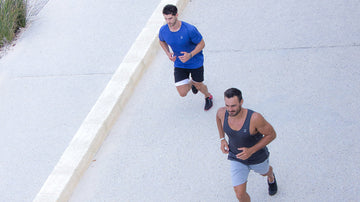What in the World Is Plogging?

Details on the new fitness craze sweeping Europe and Asia
Health and fitness crazes are nothing new. From CrossFit to SoulCycle to boot camp classes, there’s no shortage of fresh ways to break a sweat. However, as new as those crazes are, they still incorporate exercises that we know and love. Like the rest, plogging takes a tried and true exercise but throws in an unexpected element for an extra calorie burn.
What is plogging?
Plogging is an eco-friendly form of jogging that involves picking up trash. You read that right—this is jogging that helps the environment. The word itself is a mash-up of jogging and plocka upp, the Swedish term for “pick up”. The craze started in Sweden and has quickly spread across Europe and Asia. Plogging groups have popped up around the globe.

Why try plogging?
There are two main motivators driving plogging’s popularity. First, it benefits the planet. Ploggers report picking up everything from cigarette butts to plastic containers. You’re ensuring that litter gets recycled and properly disposed. There’s a feel-good component of your workout that has nothing to do with endorphins.
But of course, there’s a health benefit. According to a recent Washington Post article, plogging burns 288 calories per half-hour. That’s about 50 calories more than regular jogging. Apps like Sweden’s Lifesum have even added plogging to their fitness activity trackers. So, sure you’re helping the environment, but you’re also helping your waistline.
Some analysts have even suggested plogging could help the government. As its popularity continues to skyrocket, there could be a reduced need for street sweepers. That means less government expenditures (and possibly more tax money back in our pockets).

So, how do you plog?
Don’t let the name fool you. Plogging doesn’t involve anything unusual, besides the whole picking up trash aspect. Plan your normal routine—same trail or route, same speed, same mileage. But there’s a few things to keep in mind:
- If you’re running for pace, stopping for litter might slow you down. Try to account for that in your plans. And, if you’re training for a race, you may need to save plogging for your post-competition runs.
- Be sure to fuel properly. Burning an extra 50 calories per half-hour may not sound like much, but that’s an extra 100 calories per hour. And even more if you run longer. Doublecheck your macros and intake to ensure you’re accounting for your activity.
- Carry a small plastic bag. There’s no reason for this to become cumbersome. Run with a small drawstring sportpack and keep the bag inside. Pull it out when you need it and keep all the litter collected in the bag until you come across a trash can.
- Share your plog on social media. #Plogging and #Ploggers have big, devoted communities on Instagram.
All forms of exercise offer us a chance to do something great for our bodies and prolong our health. Why not try plogging and also prolong the health of Planet Earth?




